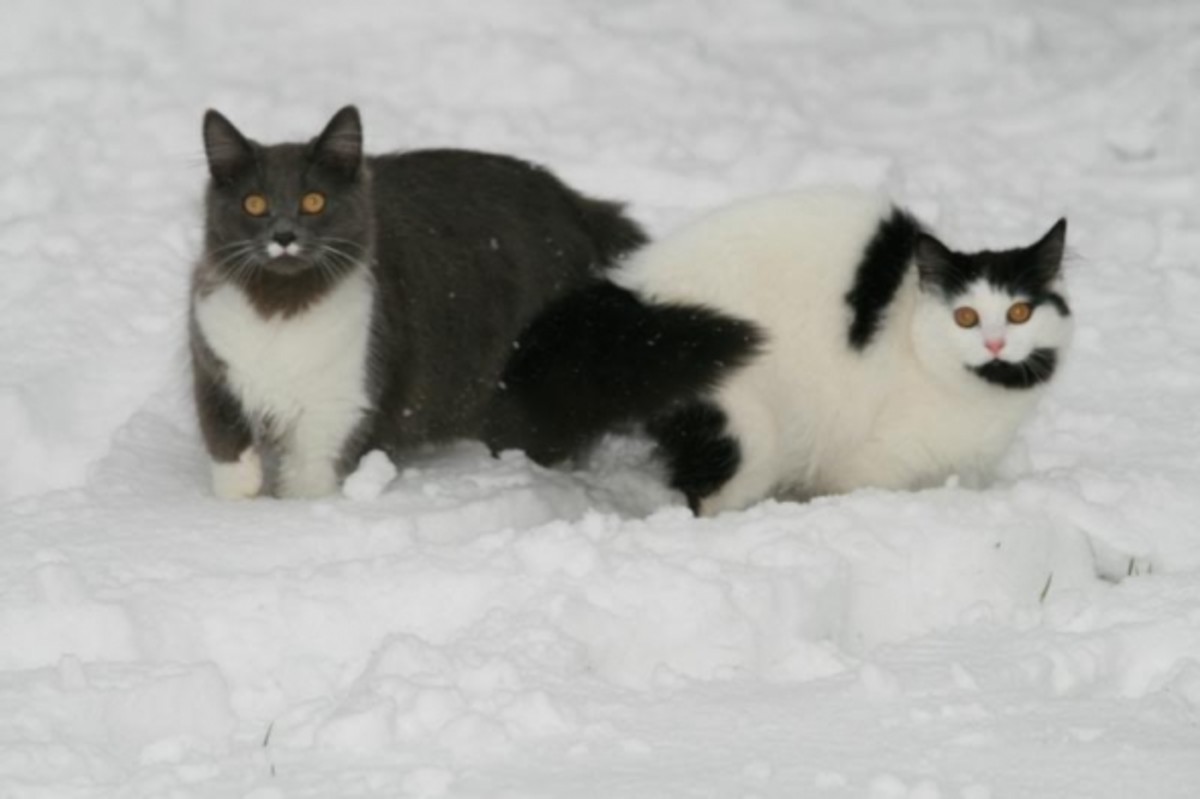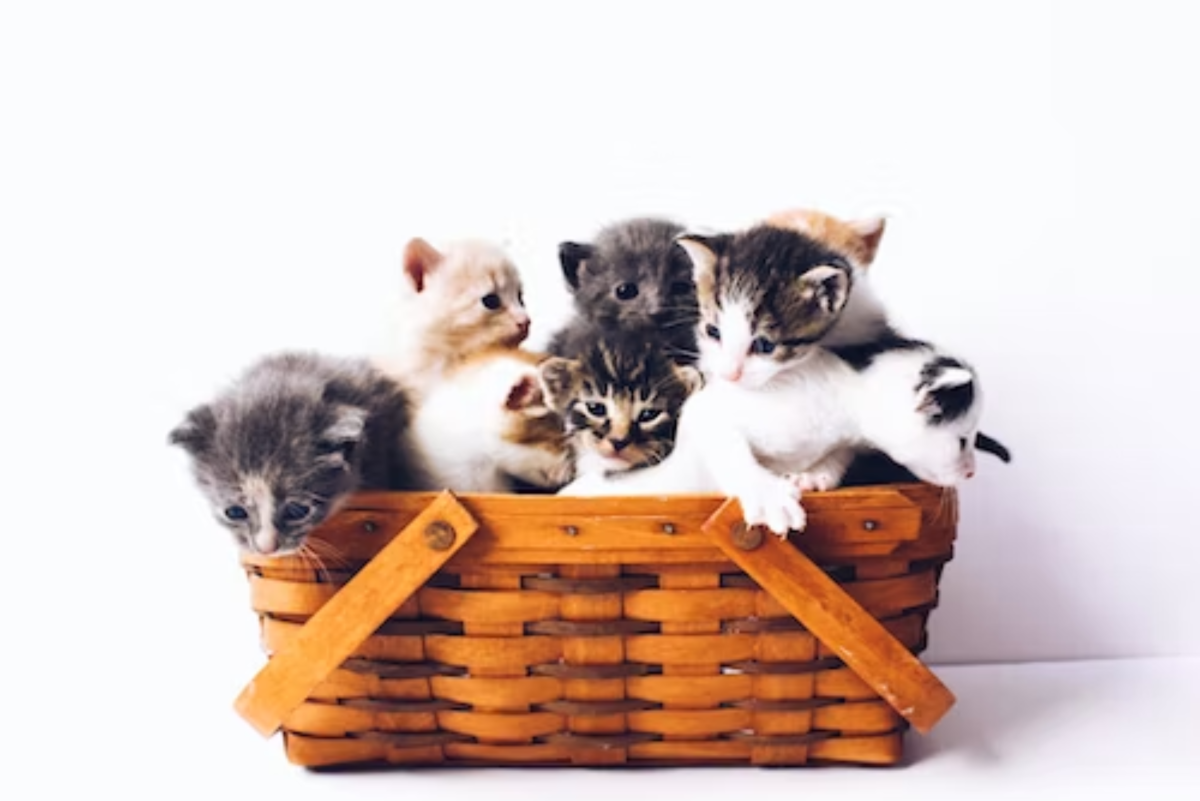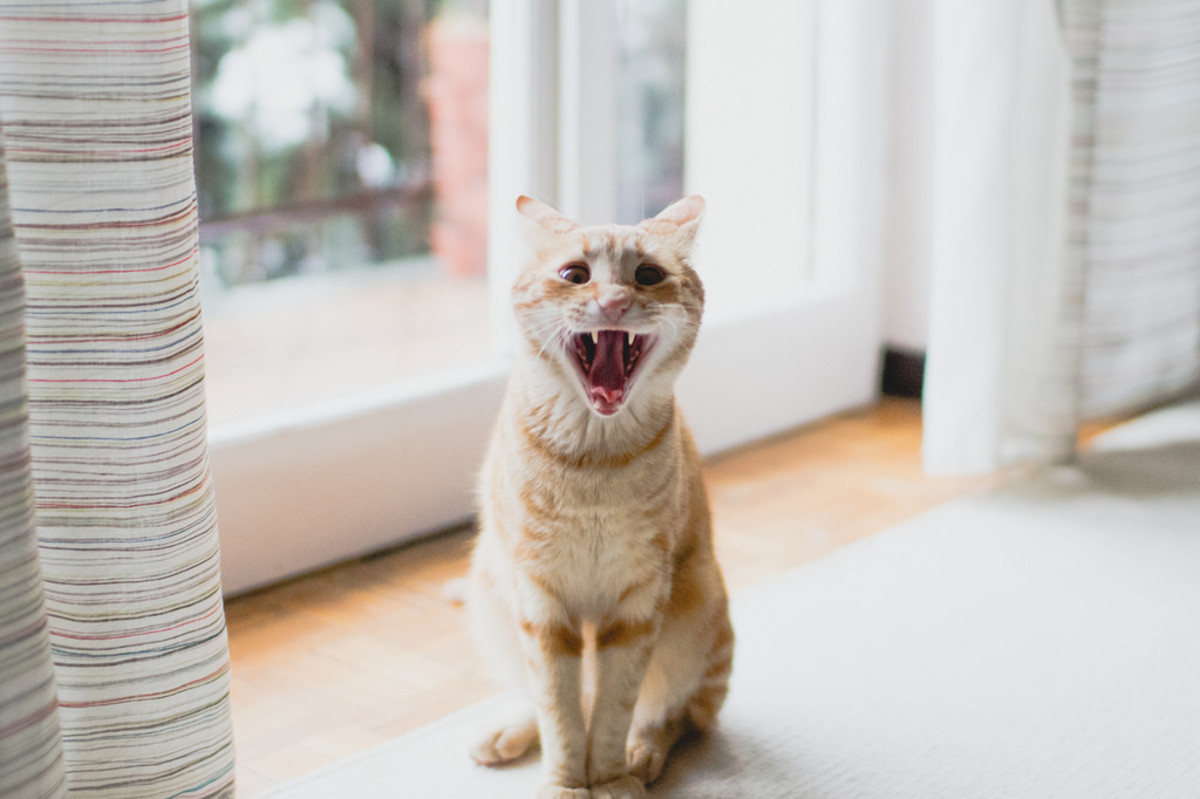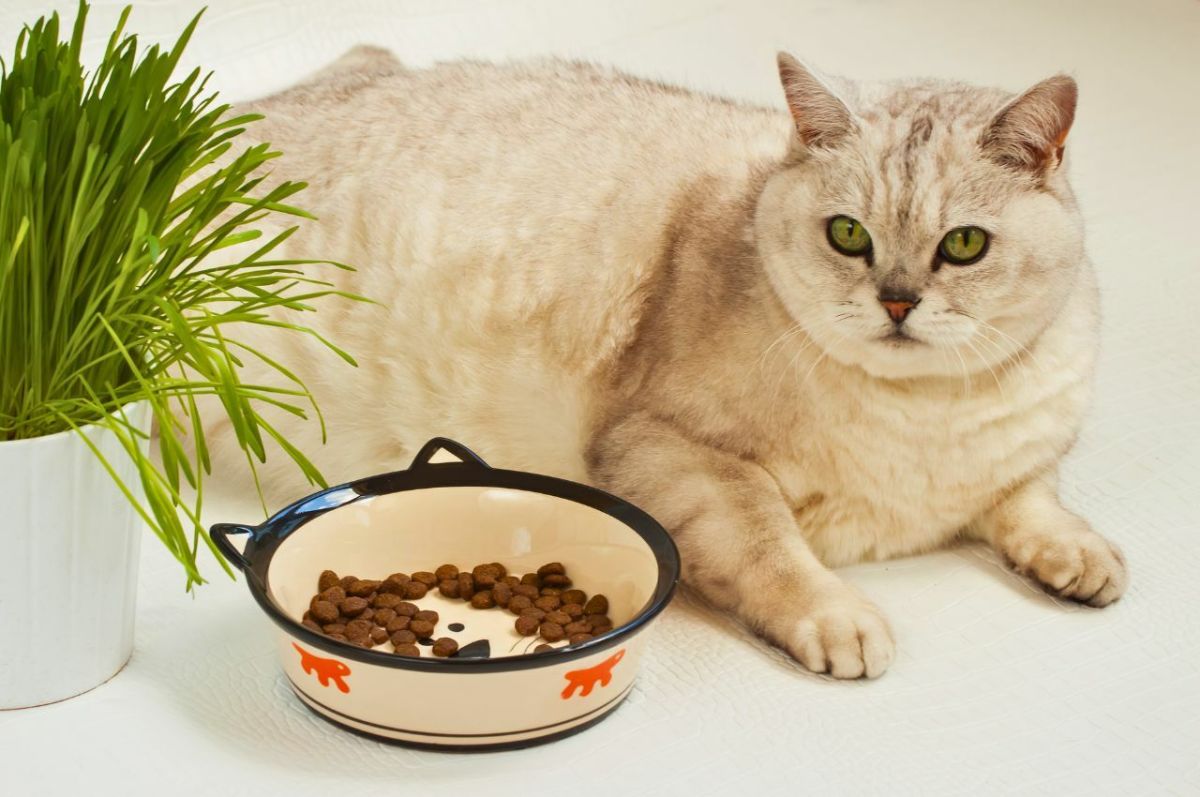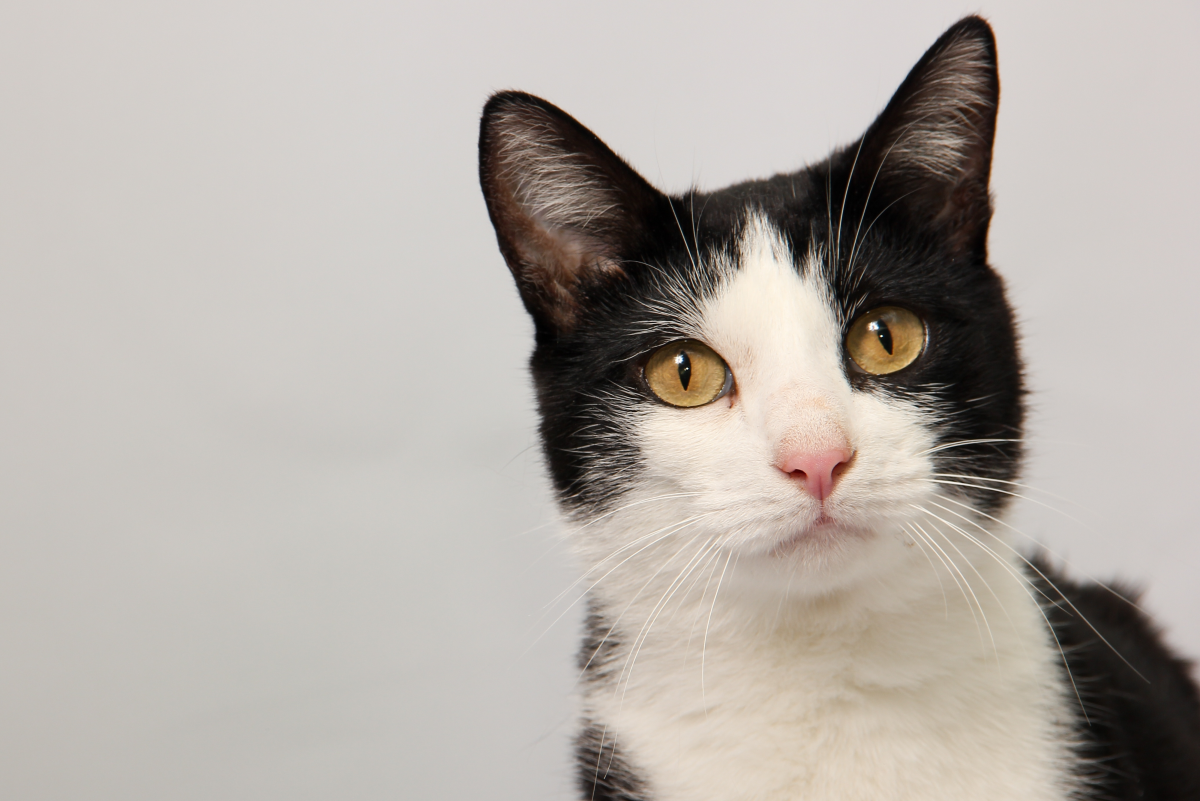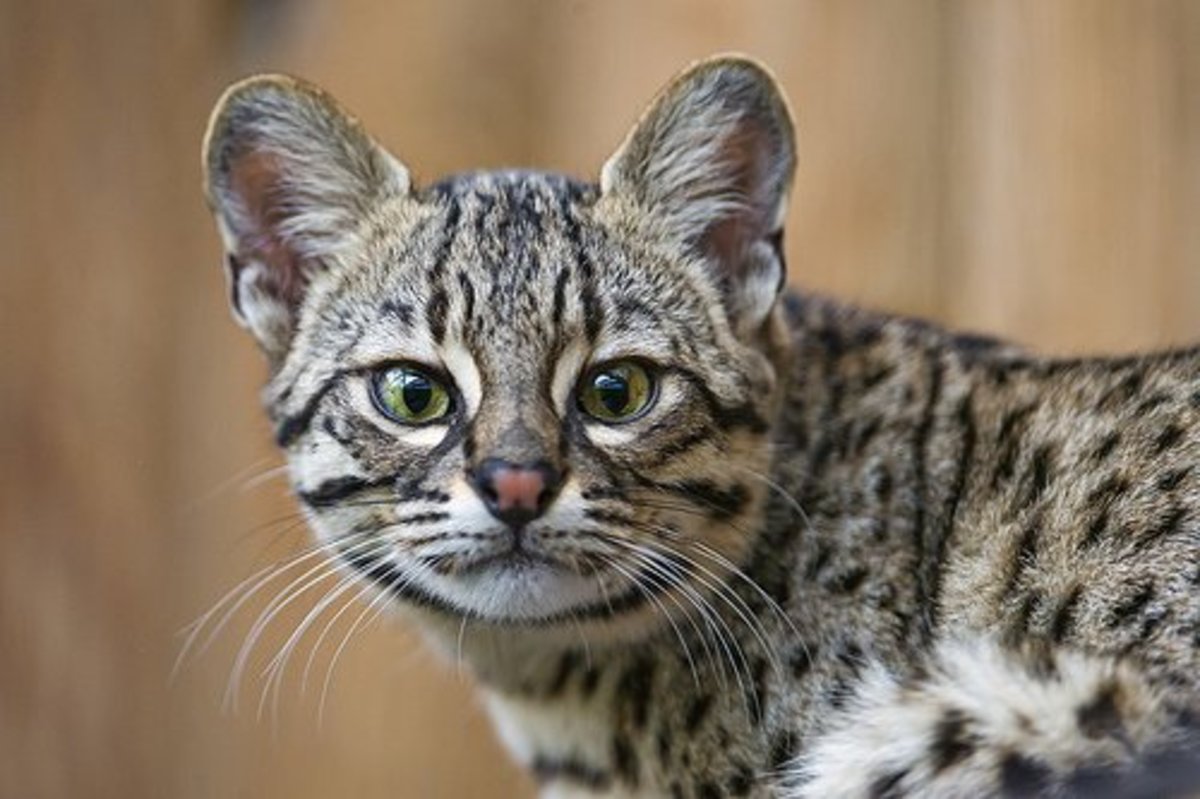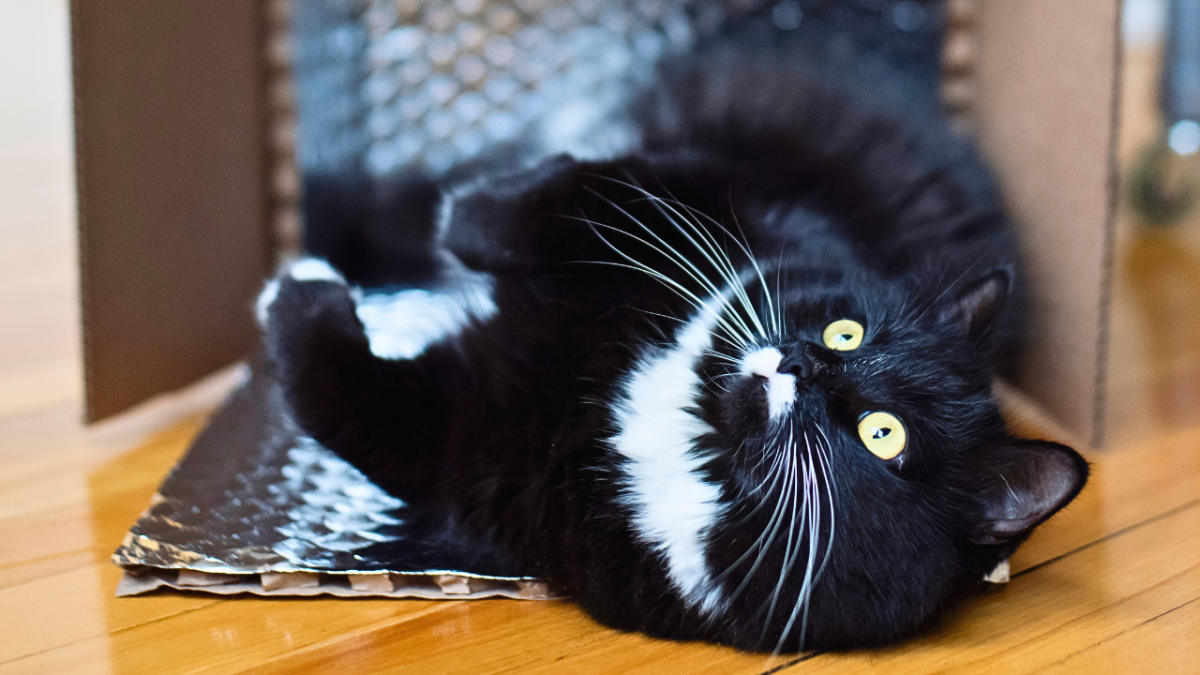Origin of the Domestic Cat: When did they start letting us serve them?
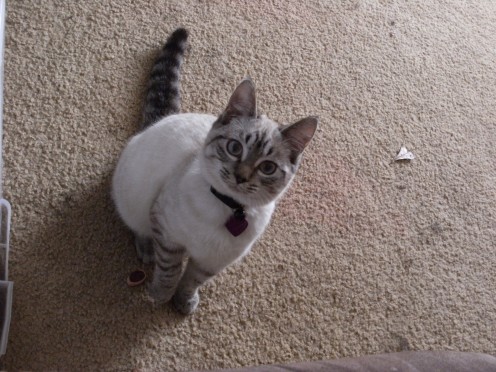
In the begining... There was cat. And they knew they were good.
Ever wonder where fluffy came from? Or ever stop and wonder when the first time a kitty decided to let a human live with them?
There are over 600 Million house cats in the world right now.
All of them can be linked down to 5 types of wild cats. Those cats can be linked down to one.
Read on to find out more.
How long ago was the first domestic cat?
Holy cow! Cats have been domesticated for thousands of years! The oldest one on record according to my National Geographic video is 9,500 years ago! In Cyprus. Which is in the Mediterranean Sea.
They were never officially made to domesticate. Cats did it themselves. They started by forming symbiotic relationships with early farmers. Farmers would notice how cats would get rid of vermin, and the cat realized they would have a shelter over their heads, food and people to worship them. So that's how it started. The Egyptians were not the first to domesticate the cat. The Egyptans however where some of the first peoples to get the cat to be companion animals, not just working mousers.
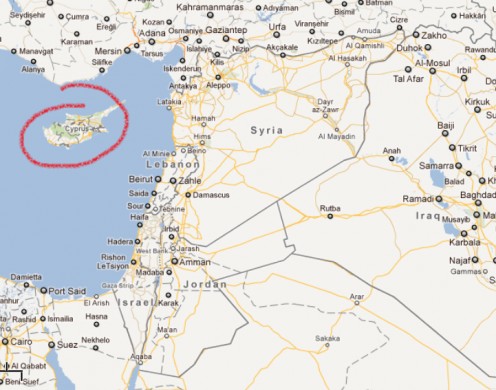

How to tell a wild Cat from a Domesticated Cat
The term wildcat is often used to describe a cat that is not feral, yet not domesticated.
Feral means at one point either the cat or close ancestor was a domesticated cat. These cats can become feral by abandonment, hoarders that do not interact (or have too many) to properly socialize with the cats etc. Feral means they do not interact with humans like a normal house cat would. They have lost all recognition that humans are not the devil. No matter how bad you feel for them, do not take them in as a pet. Get a local feral cat organization (google them) and have them tell you what to do. You can get seriously hurt, your children and other pets can get hurt as well.
Stray is different than feral. Stray means they have lost their home to some circumstance, but still recognize humans as being okay to interact with. If you ever take a stray in, get it checked out by a vet first before you let it around your other pets or children. In case they are sick.
Sitting side by side there is no real way to tell domestic from wild. They look exactly the same, with the exception of all the designer breeds, the designer breeds look different.
The only way to truly tell is by genetics and D.N.A.
The Near Eastern Wild cat is speculated to be the domestic cat's origin. There have been many studies and tests done with thousands of cats to pin point where they came from. All of their genetic markers point to this wildcat. So somewhere deep down your mittens and fluffy originate from this kitty.
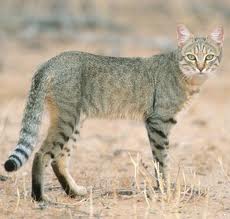
A little bit of history...
They say that the wildcats have been around for 70,000-100,000 years. And archaeologists could tell they were domesticated back 9,500 years ago by remains they had found in Cyprus, there is no known native cats to Cyprus, so they were brought there during settling by humans.
Wild Cats are not the same as Lions, Tigers, Cheetahs, Leopards and Jaguars. Those are big cats. Yes, they are wild. But they are 10 or more times bigger than a wild cat.
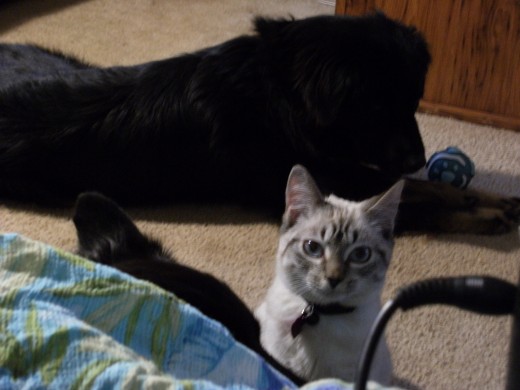
Cattitude
The domesticated cat was mainly spread through out the world to do what they do best. Hunt.
Not like a dog, where it will let the owner have the kill, but to kill vermin that the human didn't want destroying hard worked crops and food storage. They can squeeze into smaller places some dogs cannot.
Cats have been given as royal presents. Traded for various items, and also have been picked up from spoils of war during the barbarian ages. Spreading different kind of kitties all over the world and creating the breeds we know of today.
The cat's overly independent attitude leaves the species to be desired. If you're looking for lots of affection, companionship and love, get a dog. If you want a pet that may deal with you when it wants to. You're fine with a cat.
Some cats act differently than this. My cats have been raised around dogs, so they act more like dogs. And some cats are just friendly. Its individual animals. They all have personalities just like people.
Cat Biology and Babies
Kittens are cute right?
Sadly all those kittens that are cute, grow up to be cats, and most of the time the "cute" novelty wears off.
Cats in the course of 7 years can have 400,000 babies. Not all by themselves. That's one cat, her babies, and all the babies having babies etc etc etc...
Cats are like rabbits, they can breed and have babies all year round, and can get pregnant up to the day they have a litter. They can get pregnant right after the last kitten is born.
Cats can also make themselves go into heat if they want to, even if they were just in heat 2 days ago. They can do it again.
Crazy isn't it?
So, every 64-67 some odd days, a cat can pop out 1-13 kittens. And they are old enough to have babies at 3-4 months old. Although most of them I have seen breeding at this age have died during delivery. Its less cruel to just get them fixed.
Spay and neuter. Spay and Neuter. Unless you have a papered show cat you are planning to breed. Spay and Neuter. Keep that unfixed cat indoors, away from other unfixed cats.
Hopefully someone learned something ^_^
Thank you for reading and have a Blessed day!

